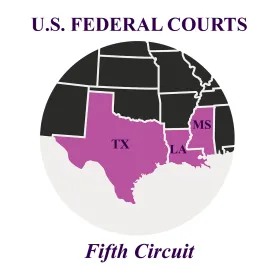Disputes arising in the Gulf of Mexico (GOM) following Hurricane Ida can be subject to three bodies of law: maritime law, federal law under the Outer Continental Shelf Lands Act (OCSLA), and state law, whether surrogate federal law under the OCSLA or within territorial waters. Jurisdiction for claims arising in the GOM is generally a federal question under 28 U.S.C. § 1331 subject to the saving to suitors clause in certain maritime-related claims. See 28 U.S.C. § 1333(1). Jurisdictional issues can be complicated and fact-based where maritime and non-maritime “services” are “mixed,” as discussed in Baker v. Hercules Offshore, Inc., 706 F.3d 680 (5th Cir. 2013).
The Outer Continental Shelf (OCS), as defined, consists of submerged lands, subsoil, and seabed in a specified zone up to 200 or more nautical miles seaward of the adjacent states’ jurisdiction. The OCSLA, 43 U.S.C. § 1331, et seq., regulating OCS operations extends federal jurisdiction to OCS operations and resources under 43 U.S.C. § 1349(b). Likewise, the OCSLA extends the benefits conferred by the Longshore and Harbor Workers Compensation Act (LHWCA) to employees working on the OCS.
A claim filed in state court can be removed to federal court under the OCSLA if there is a requisite connexity to OCS operations. See Tenn. Gas Pipeline v. Houston Cas. Ins. Co., 87 F.3d 150 (5th Cir. 1996). Generally speaking, courts consider whether the incident or injury occurred “as a result of operations conducted on the [O]uter Continental Shelf,” which requires a showing of a “substantial nexus” between the injury and the OCS operations. Owensby & Kritikos, Inc. v. Director, 997 F.3d 587, 593 (5th Cir. 2021). This substantial nexus test requires a link only between the employee’s injury and operations conducted on the OCS. Id. For example, in Mays v. Chevron, 984 F.3d 442 (5th Cir. 2020), the LHWCA was extended to a platform explosion in state waters because of a “substantial nexus” to OCS operations. Similarly, in Owensby, the US Court of Appeals for the Fifth Circuit determined that the LHWCA extended to an onshore vehicular accident involving a field supervisor because that supervisor was headed to the OCS. Nevertheless, each case and determination of the application of the OCSLA depends upon the specific factual circumstances.
Federal law applies to OCS claims, but claims on fixed platforms may be supplemented by the law of the adjacent state under the OCSLA when not inconsistent with federal law. Rodrigue v. Aetna Cas. & Ins. Co., 395 U.S. 352 (1969); Parker Drl’g. v. Newton, 139 S.Ct. 914 (2019). The applicable law involving OCS commercial contracts is important because both Texas and Louisiana have enacted oilfield anti-indemnity legislation. Contracts involving both offshore platform services and vessel services may be subject to state or maritime law depending on the substantial use of a vessel. Barrios v. Centaur, LLC, 942 F.3d 670 (5th Cir. 2019).
Various federal agencies govern operations on the OCS, including the Bureau of Ocean Energy Management, United States Coast Guard, National Oceanic and Atmospheric Administration, United States Army Corps of Engineers, United States Geological Survey, Environmental Protection Agency, Occupational Safety and Health Administration, and others. Agency work often overlaps, and multiple Memoranda of Understanding and Memoranda of Agreement are entered into by the various agencies. Attached hereto is an illustrative list of offshore exploration and production statutes and agencies.
Jurisdiction and applicable law issues arising on the OCS are often complicated. Contract choice of law provisions may not apply. What may be the “adjacent” state to an OCS facility requires an analysis beyond drawing a straight line. Whenever a claim arises offshore, the questions to be asked include:
-
Is the resource involved within state or federal territorial waters?
-
Does maritime law apply on its own?
-
Does the claim arise out of OCS operations involving the exploration, development, or production of minerals or other non-mineral energy resources beyond the situs of the claim?
-
Is the law of the adjacent state consistent with federal law?
Offshore disputes require careful analysis to determine jurisdiction, the applicable law, and the regulatory agency authority.





 />i
/>i

